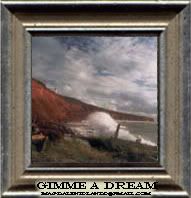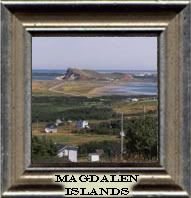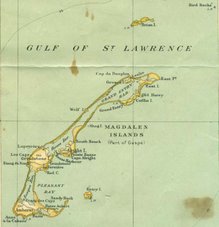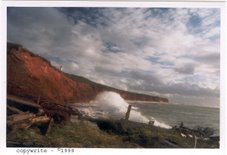Government of Canada grants $133,540 in funding to the Council for Anglophone Magdalen Islanders
 Support for tourism development in Grosse-Île
Support for tourism development in Grosse-Île
Grosse-Île, Quebec, October 27, 2009 – The Honourable Denis Lebel, Minister of State for Canada Economic Development, today announced that the Council for Anglophone Magdalen Islanders has been awarded $133,540 in non-repayable funding under the Community Economic Diversification Initiative – Vitality to establish a tourism development plan for Grosse-Île.
Every summer, a growing number of visitors make their way to picturesque Grosse-Île, drawn by the site’s unique character, the tree-covered points jutting out into the ocean and the warm hospitality of the small English-speaking community’s 550 or so inhabitants. To accommodate this increase in tourist traffic to the archipelago, improvements need to be made to the area’s reception infrastructure and new activities developed to meet the demands and expectations of the market.
“The Government of Canada is today reaffirming its commitment to support communities that, through projects like this one, are taking their future in hand and furthering the reach and reputation of their region. Through this plan, the Council for Anglophone Magdalen Islanders is seeking to establish a framework for tourism initiatives on Grosse-Île and support local concerted efforts to develop the cruise industry by capitalizing on the many tourist attractions the area has to offer. The entire Îles-de-la-Madeleine economy, which depends heavily on the fishery industry, is sure to benefit from this diversification measure,” explained the Minister of State.
“Implementing the recommendations of this plan could result in the creation of seasonal employment and encourage more young Magdalen Islanders to remain in the region. This project is well in line with the strategy our government has put in place through Canada’s Economic Action Plan to support communities that, despite the current economic downturn, are stepping up their efforts to succeed. This project could lead to concrete business opportunities for the region and allow it to face the future with greater confidence and optimism,” Minister Lebel added.
Tourism is the second most important industry on the archipelago and a key development priority for Canada Economic Development’s Gaspésie and Îles-de-la-Madeleine business office. It is estimated that some $50 million in economic spinoffs is generated by the 52,000 or so tourists who visit the region every year.
For more on Canada’s Economic Action Plan, see www.actionplan.gc.ca.

















